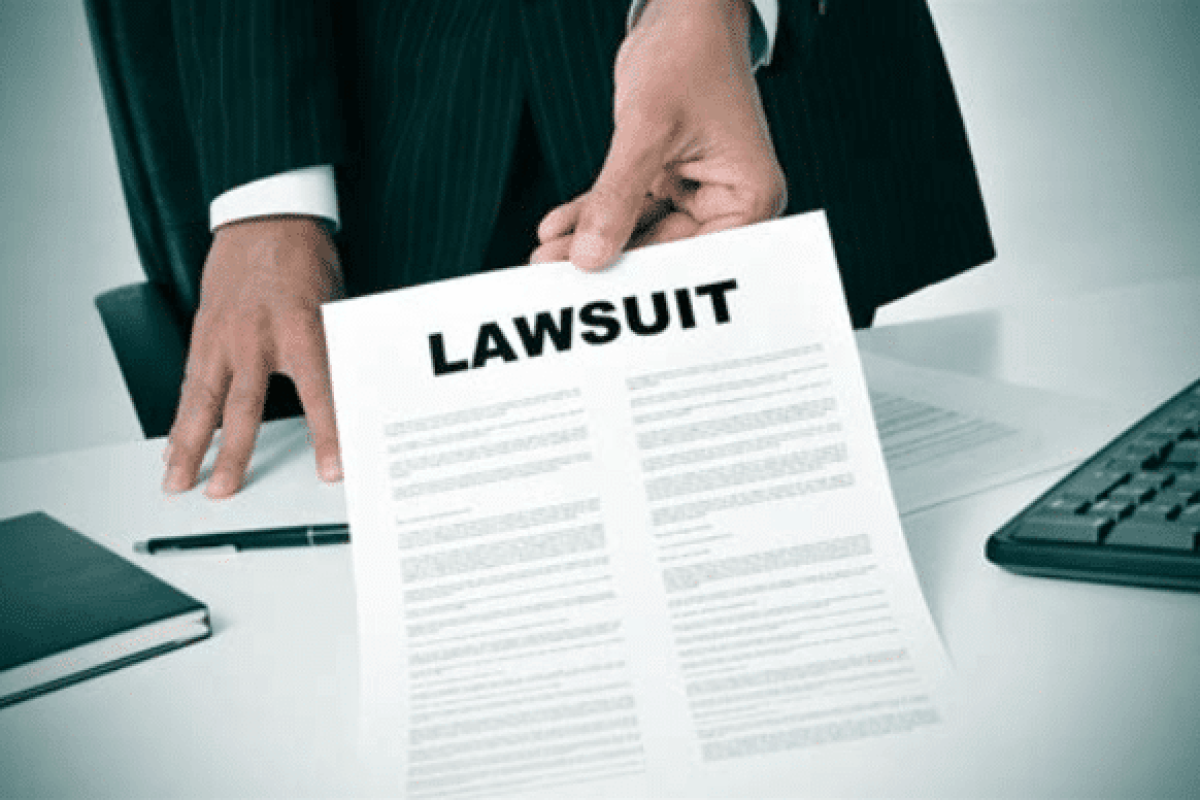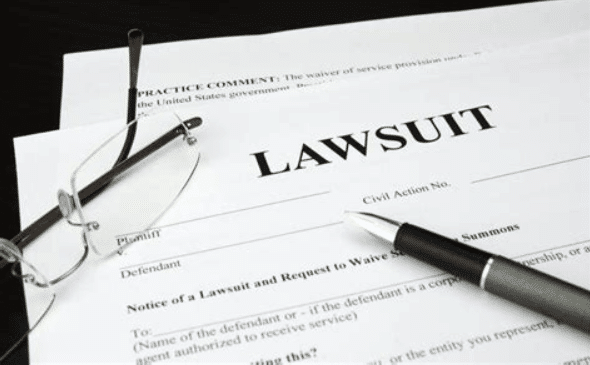Facing a lawsuit can be daunting, but being informed about how to access your court records can greatly alleviate the process. In Rhode Island, accessing your court records is facilitated either at the courthouse or by contacting the court clerk. Additionally, you can conveniently check your case status online. Leveraging ZumaZip.com to respond to a lawsuit can significantly bolster your chances of success.
Being sued for debt can disrupt your financial stability and potentially exacerbate your debt burden. Therefore, it’s essential to diligently track your case progress and ensure you are adequately prepared for any court proceedings. Reviewing your court records can aid in crafting a robust defense and may prevent adverse actions such as bank account access or wage garnishment by the collection agency.
Rhode Island is committed to enabling its citizens to access their records, whether through in-person visits to the courthouse or online platforms. These records typically encompass important details such as court dates, courtroom assignments, and documents filed by the collection agency. This article aims to guide you through accessing your records in Rhode Island. But before delving into that, let’s first explore how the Rhode Island court system operates.
Sued for debt? Settle your debt and avoid going to court.
Court structure in Rhode Island
Understanding how Rhode Island’s court structure works makes it easier for you to find your court case. When you know what type of court has jurisdiction over your case, you will know where your case has been filed. Since debt collection lawsuits are considered civil cases, we will focus on the civil court structure in this section.
Rhode Island’s court structure ensures its citizens receive the help they need conveniently and within a reasonable time. The various court levels work in tandem and get their jurisdiction over matters from the constitution. Rhode Island has three levels of courts that handle civil cases::
- Supreme Court: This is the court of last resort for the state and has appellate jurisdiction over all matters. They follow the constitution and law precisely when reviewing cases from lower courts. They also have authority over the judicial system—they set rules for how the courts should conduct their work and administer discipline when necessary.
- Superior Court: The four superior courts in Rhode Island hold both jury and non-jury trials in civil matters. They have original jurisdiction over civil cases where the amount in question exceeds $10,000, felony cases, and equity matters. Unlike most states, the appeals they receive from the District Court result in an entirely new trial instead of reviewing the previous judge’s decision.
- District Court: This court has exclusive jurisdiction over civil matters where the amount does not exceed $5,000. They also have original jurisdiction with Superior Court over claims between $5,000 and $10,000. Notably, the District Courts do not hold jury trials.
Your debt collection case will probably be heard in the District Court under the small claims division. These cases take approximately 60 days for a judge to make a decision. Hence, it’s essential to file your Answer immediately and start working on your defense.
How to find your case number
Rhode Island court clerks maintain an organized filing system by using case numbers. When you present a matter to the court, the clerk assigns the issue a number to help identify it quickly during court proceedings or when you want to access your records. The number contains letters, digits, and characters gotten from:
- The year the matter was filed
- The case or court type
- The judicial officer’s or judge’s initials
- The sequential number for the related cases for that year
The case number is usually indicated in the lawsuit, but if you cannot trace it, visit the courthouse and request the court clerk for help. You will fill out a request form and may pay a small fee for the services. Alternatively, go to the state’s Rhode Island’s online case access portal and search using the advanced filtering option.
How to access your court records in Rhode Island
Preparing well for court increases your chances of getting a favorable judgment if requesting the creditor to settle out of court is not an option. Rhode Island makes it easy to access the records when you visit the courthouse or use the online portal. Let’s briefly show you how to go about either option.
Access your court records in person
Making a trip to the courthouse guarantees you’ll get a detailed court record because the clerk may take slightly longer to enter the case information online. The first step in accessing your records is to find the location of the courthouse where your case was filed via the following link for District and Superior Courts. Once on the page, search for your city or town and take note of the physical address.
In the courthouse, the clerk will ask you to fill out a request form, and they’ll use the details to search for your records. Other courthouses have public self-service terminals for you to access the documents and pay a nominal fee for the copies.
Access your records online
Remote access is the quickest way to find your records. The case number (record number) option further simplifies the process because you don’t need to enter more information apart from the case number. The Rhode Island Judiciary Public Portal gives you other options to search for your records. They include:
- General option
- Party search option
- Case search option
Fill in as much information as possible to narrow down the search. The results will reveal your case only or several with similar details.
Let’s look at an example.
Example: After suffering a severe accident in Rhode Island, Mike had a medical debt of $4,523 with Accurate Billing Solutions (ABS). Eventually, his employer replaced him because he could not perform his duties anymore. Eight months later, ABS tried to collect the debt, and Mike explained his situation, but the agent did not believe him. Instead, they delivered a lawsuit letter to his home. Mike knew he had to respond to the lawsuit but didn’t know how to explain his predicament. After hearing about ZumaZip’s customizable Answer, he used it to file a response. Mike knew he had a fighting chance, and he accessed his records via the state’s online portal. He was later advised to visit the courthouse for comprehensive case records to prepare well for court. Since he lived in Middletown, he visited the Murray Judicial Complex at 45 Washington Square, Newport, and got his court records.
Use SoloSuit to respond to debt collectors
Our team works tirelessly to ensure you manage your debt situation without going deeper into debt. We have a wealth of helpful resources on our blog page and YouTube videos. In addition, our documents can help you address your current situation. These documents include:
- Debt Validation Letter: When debt collectors initially reach out, send them this letter to force them to validate your debt. If they cannot prove that you owe the exact amount they claim, with proper documentation and evidence, then they must cease contacting you.
- Answer: If you have been sued for a debt you owe, the first step to winning your case is to respond to the lawsuit. You can draft and file your Answer with your court in minutes with SoloSuit’s services.
- Motion to Compel Arbitration: If you owe a credit card debt and are being sued for it, check your card agreement for an arbitration clause. If the clause exists, you can file a motion to force the case out of court and have an arbitrator help you reach a debt settlement with the opposing party.
- ZumaZip Settle: When you know you owe the money that you’re being sued over, and you have enough on hand to pay some of it off, reaching a debt settlement is a great option. This letter will help you start the debt settlement negotiation process.
What is ZumaZip?
ZumaZip is a convenient solution designed to streamline your response to a debt collection lawsuit. Here’s a breakdown of what you can expect when you use ZumaZip:
Firstly, you’ll access our user-friendly web application, which guides you through the process step by step. You’ll be prompted to answer a series of questions related to your specific situation. Once you’ve completed the questionnaire, you have the option to either print out the finalized forms and mail them to the appropriate courts yourself, or you can opt to utilize ZumaZip’s services to file them on your behalf. Additionally, if you choose this option, an attorney will review your document for added peace of mind.
If you’re seeking guidance on how to effectively respond to a debt collection lawsuit, ZumaZip can provide the assistance you need. Feel free to explore our FAQs for more information on what ZumaZip has to offer.
What if I haven’t been sued yet?
If you’ve only received a collections notice, but not a lawsuit, the best way to respond is with a Debt Validation Letter. When a debt collector contacts you in any way, whether it’s by phone or mail, you can respond by formally requesting a debt validation with a Debt Validation Letter . This letter notifies the collector that you dispute the debt and forces them to provide proof you owe the debt. They can’t call you or continue collecting until they provide validation of the debt. This flowchart shows how you can use a Debt Validation Letter to win.
Get started with a Debt Validation Letter here.
How to Answer a Summons for debt collection in all 50 states
Here’s a list of guides on how to respond to a debt collection lawsuit in each state:
- Alabama
- Alaska
- Arizona
- Arkansas
- California
- Colorado
- Connecticut
- Delaware
- Florida
- Georgia
- Hawaii
- Idaho
- Illinois
- Indiana
- Iowa
- Kansas
- Kentucky
- Louisiana
- Maine
- Maryland
- Massachusetts
- Michigan
- Minnesota
- Mississippi
- Missouri
- Montana
- Nebraska
- Nevada
- New Hampshire
- New Jersey
- New Mexico
- New York
- North Carolina
- North Dakota
- Ohio
- Oklahoma
- Oregon
- Pennsylvania
- Rhode Island
- South Carolina
- South Dakota
- Tennessee
- Texas
- Utah
- Vermont; Vermont (Small Claims court)
- Virginia
- Washington
- West Virginia
- Wisconsin
- Wyoming
Guides on how to beat every debt collector
Hey there! Facing off against a debt collector can feel like a daunting challenge, but fear not! We’re here to help you navigate through it all with our handy guides designed to assist you in beating every debt collector you encounter. Whether you’re facing a new lawsuit or dealing with a persistent collector, we’ve got your back. Stay positive, stay informed, and let’s tackle this together!
- Absolute Resolutions Investments LLC
- Accredited Collection Services
- Alliance One
- Amcol Clmbia
- American Recovery Service
- Asset Acceptance LLC
- Asset Recovery Solutions
- Associated Credit Services
- Autovest LLC
- Cach LLC
- Cavalry SPV I LLC
- Cerastes LLC
- Colinfobur
- Covington Credit
- Crown Asset Management
- CTC Debt Collector
- Cypress Financial Recoveries
- Delanor Kemper & Associates
- Eagle Loan of Ohio
- Educap
- Estate Information Services
- FIA Card Services
- Forster & Garbus
- Freshview Solutions
- Fulton Friedman & Gullace LLP
- Harvest Credit Management
- Howard Lee Schiff
- Hudson & Keyse LLC
- Integras Capital Recovery LLC
- Javitch Block
- Jefferson Capital Systems LLC
- LVNV Funding
- Mannbracken
- Mariner Finance
- Medicredit
- Michael J Adams PC
- Michael J Scott
- Midland Funding LLC
- Mullooly, Jeffrey, Rooney & Flynn
- Mountain Land Collections
- MRS Associates
- National Collegiate Trust
- Nationstar Foreclosure
- Northstar Capital Acquisition
- NCEP LLC
- NRC Collection Agency
- OneMain Financial
- Palisades Collection LLC
- Pallida LLC
- Paragon Revenue Group
- Pinnacle Collections Agency
- PMAB LLC
- Portfolio Recovery Associates
- Provest Law
- PYOD LLC
- Reunion Student Loan Finance Corporation
- Revenue Group
- Regents and Associates
- RSIEH
- Salander Enterprises LLC
- Second Round Sub LLC
- Security Credit Services
- Sherman Financial Group
- Suttell and Hammer
- T-Mobile
- Transworld Systems
- Tulsa Teachers Credit Union
- UCB Collection
- Velo Law Office
- Velocity Investments
- Waypoint Resource Group
- Weinberg and Associates
- Wolpoff & Abramson
Settle your medical debt
Having a health challenge is stressful, but dealing medical debt on top of it is overwhelming. Here are some resources on how to manage medical debt.
- Am I Responsible for My Spouse’s Medical Debt?
- Do I Need a Lawyer for Medical Bills?
- Do I Need a Lawyer to Fight Medical Bill Debt?
- Does Bankruptcy Clear Medical Debt?
- How Much Do Collection Agencies Pay for Medical Debt?
- How to Find Medical Debt Forgiveness Programs
- Is There a Statute of Limitations on Medical Bills?
- Medical Debt Statute of Limitations by State
- Summoned to Court for Medical Bills — What Do I Do?
- Summoned to Court for Medical Bills? What to Do Next
Stop calls from Debt Collectors
Do you keep getting calls from an unknown number, only to realize that it’s a debt collector on the other line? If you’ve been called by any of the following numbers, chances are you have collectors coming after you, and we’ll tell you how to stop them.
- 800-390-7584
- 800-289-8004
- 800-955-6600
- 877-366-0169
- 877-591-0747
- 800-278-2420
- 800-604-0064
- 800-846-6406
- 877-317-0948
- 888-899-4332
- 888-912-7925
- 202-367-9070
- 502-267-7522
Other wage garnishment resources
- Bank Account Garnishment and Liens in Texas
- Can I Stop Wage Garnishment?
- Can My Wife’s Bank Account Be Garnished for My Debt?
- Can Payday Loans Garnish Your Wages?
- Can pensions be garnished?
- Can Private Disability Payments Be Garnished?
- Can Social Security Disability Be Garnished?
- Can They Garnish Your Wages for Credit Card Debt?
- Can You Stop a Garnishment Once It Starts?
- Guide to Garnishment Limits by State
- How Can I Stop Wage Garnishments Immediately?
- How Long Before a Creditor Can Garnish Wages?
- How Long Does It Take to Get Garnished Wages Back?
- How to Fight a Wage Garnishment
- How to Prevent Wage Garnishment
- How to Stop a Garnishment
- How to Stop Social Security Wage Garnishment
- How to Stop Wage Garnishment — Everything You Need to Know
- New York Garnishment Laws – Overview
- Ohio Garnishment Laws — What They Say
- Wage Garnishment Lawyer
- What Is Wage Garnishment?
Guides on Arbitration
If the thought of going to court stresses you out, you’re not alone. Many Americans who are sued for credit card debt utilize a Motion to Compel Arbitration to push their case out of court and into arbitration.
Below are some resources on how to use an arbitration clause to your advantage and win a debt lawsuit.
- How Arbitration Works
- How to Find an Arbitration Clause in Your Credit Agreement
- How to Make a Motion to Compel Arbitration
- How to Make a Motion to Compel Arbitration in Florida
- How to Make a Motion to Compel Arbitration Without an Attorney
- How Credit Card Arbitration Works
- Motion to Compel Arbitration in California
- Sample Motion to Compel Arbitration
Federal Debt Collection Laws Can Protect You
Knowing your rights makes it easier to stand up for your rights. Below, we’ve compiled all our articles on federal debt collection laws that protect you from unfair practices.
- 15 USC 1692 Explained
- Does the Fair Credit Reporting Act Work in Florida?
- FDCPA Violations List
- How to File an FDCPA Complaint Against Your Debt Collector (Ultimate Guide)
- How to Make a Fair Debt Collection Practices Act Demand Letter
- How to Submit a Transunion Dispute
- How to Submit an Equifax Dispute
- How to Submit an Experian Dispute
- What Debt Collectors Cannot Do — FDCPA Explained
- What Does Account Information Disputed by Consumer Meets FCRA Requirements Mean?
- What does “meets FCRA requirements” mean?
- What does FCRA stand for?
- What is the Consumer Credit Protection Act
Resolve Your Debt with Your Creditor
Some creditors, banks, and lenders have an internal collections department. If they come after you for a debt, ZumaZip can still help you respond and resolve the debt. Here’s a list of guides on how to resolve debt with different creditors.
- American Express; American Express – Debt Collection
- Bank of America
- Barclay
- Best Buy Credit Card
- Capital One
- Chase
- Credit One Bank
- Old Navy Credit Card
- PayPal Synchrony Card
- Regional Finance
- Retailers National Bank
- Reunion Student Loan Finance Corporation
- SYNCB/PPEXTR
- Synchrony Bank
- Synchrony Walmart Card
- Target National Bank
- Webbank
- Wells Fargo
- Can I Pay My Original Creditor Instead of a Debt Collection Agency?
- Can I Settle a Debt with the Original Creditor?
Check the Status of Your Court Case
Don’t have time to go to your local courthouse to check the status of your case? We’ve created a guide on how to check the status of your case in every state, complete with online search tools and court directories.
- Alabama Court Case Search—Find Your Lawsuit
- Alaska Court Case Search — Find Your Lawsuit
- Arizona Court Case Search – Find Your Lawsuit
- Arkansas Court Case Search — Find Your Lawsuit
- California Court Case Search- Find Your Lawsuit
- Colorado Court Case Search — Find Your Lawsuit
- Connecticut Case Lookup — Find Your Court Case
- Delaware Court Case Search — Find Your Lawsuit
- Florida Court Case Search — Find Your Lawsuit
- Georgia Court Case Search — Find Your Lawsuit
- Hawaii Court Case Search — Find Your Lawsuit
- Idaho Court Case Search – Find Your Lawsuit
- Illinois Court Case Search — Find Your Lawsuit
- Indiana Court Case Search — Find Your Lawsuit
- Iowa Court Case Search — Find Your Lawsuit
- Kansas Court Case Search — Find Your Lawsuit
- Kentucky Court Case Search — Find Your Lawsuit
- Louisiana Court Case Search — Find Your Lawsuit
- Maine Court Case Search — Find Your Lawsuit
- Maryland Court Case Search — Find Your Lawsuit
- Massachusetts Court Case Search — Find Your Lawsuit
- Michigan Court Case Search — Find Your Lawsuit
- Minnesota Court Case Search — Find Your Lawsuit
- Mississippi Court Case Search — Find Your Lawsuit
- Missouri Court Case Search — Find Your Lawsuit
- Montana Court Case Search — Find Your Lawsuit
- Nebraska Court Case Search — Find Your Lawsuit
- Nevada Court Case Search — Find Your Lawsuit
- New Hampshire Court Case Search — Find Your Lawsuit
- New Jersey Court Case Search—Find Your Lawsuit
- New Mexico Court Case Search – Find Your Lawsuit
- New York Case Search — Find Your Lawsuit
- North Carolina Court Case Search — Find Your Lawsuit
- North Dakota Court Case Search — Find Your Lawsuit
- Ohio Court Case Search — Find Your Lawsuit
- Oklahoma Court Case Search — Find Your Lawsuit
- Oregon Court Case Search — Find Your Lawsuit
- Pennsylvania Court Case Search — Find Your Lawsuit
- Rhode Island Court Case Search — Find Your Lawsuit
- South Carolina Court Case Search — Find Your Lawsuit
- South Dakota Court Case Search — Find Your Lawsuit
- Tennessee Court Case Search — Find Your Lawsuit
- Texas Court Case Search — Find Your Lawsuit
- Utah Court Case Search — Find Your Lawsuit
- Vermont Court Case Search — Find Your Lawsuit
- Virginia Court Case Search — Find Your Lawsuit
- Washington Court Case Search — Find Your Lawsuit
- West Virginia Court Case Search — Find Your Lawsuit
- Wisconsin Court Case Search — Find Your Lawsuit
- Wyoming Court Case Search — Find Your Lawsuit


































